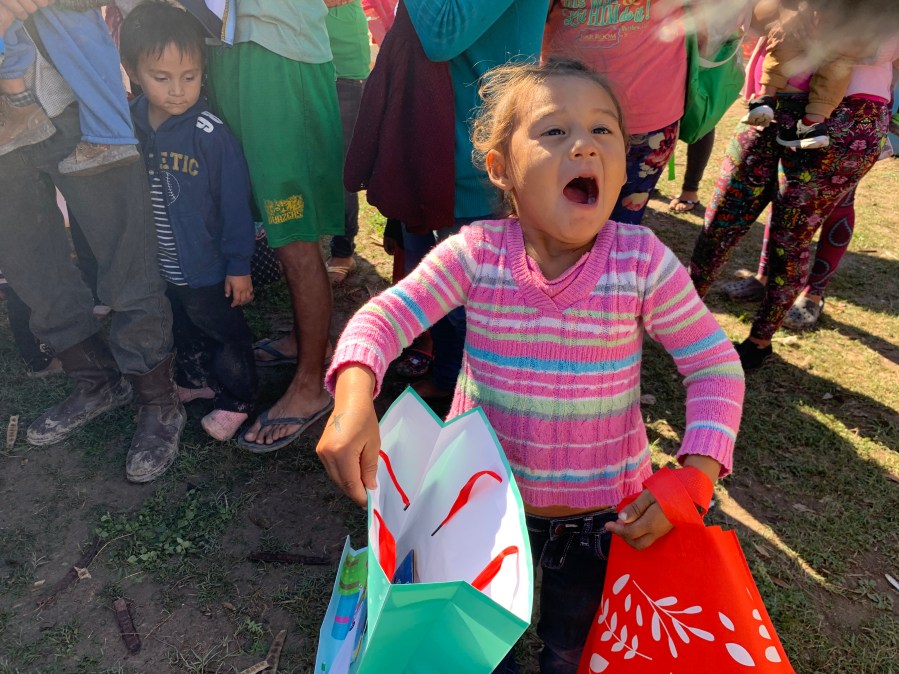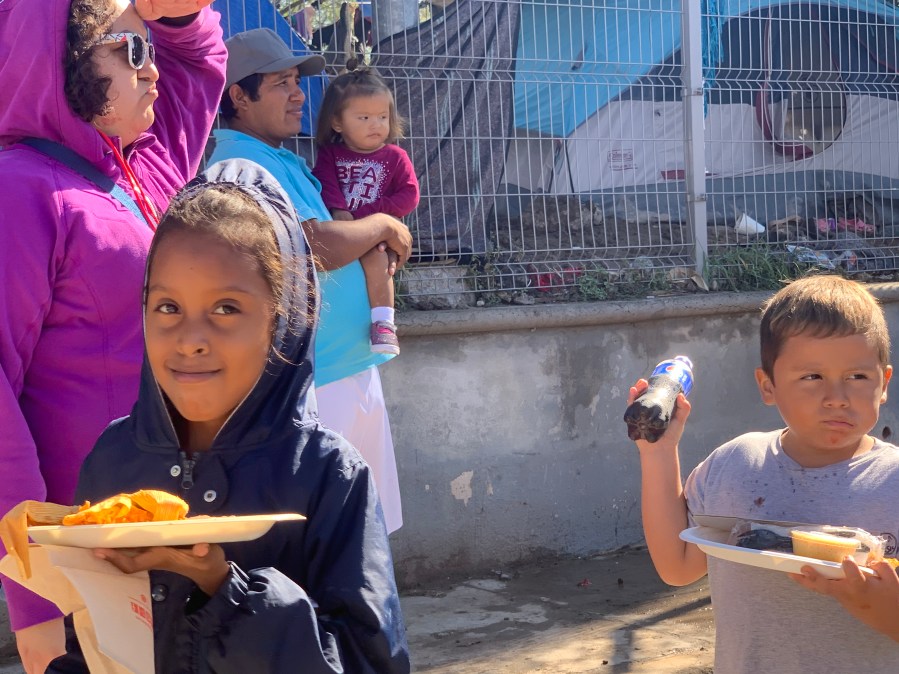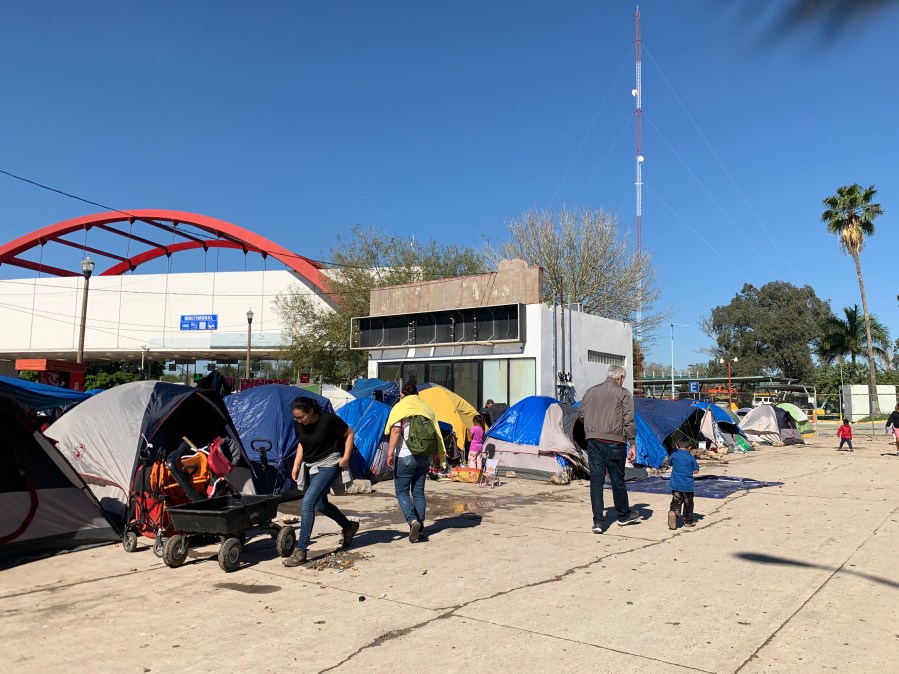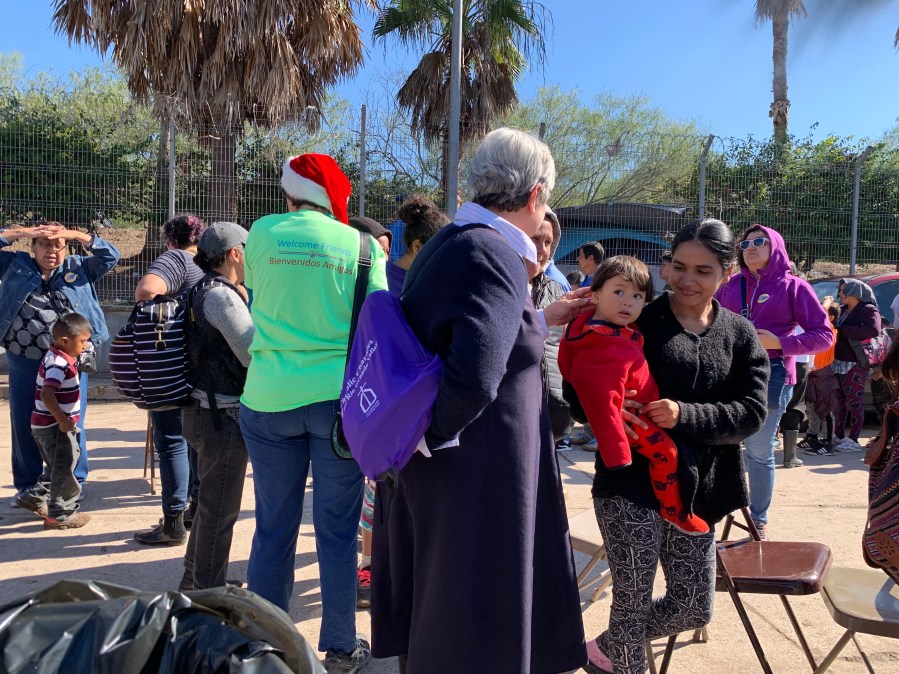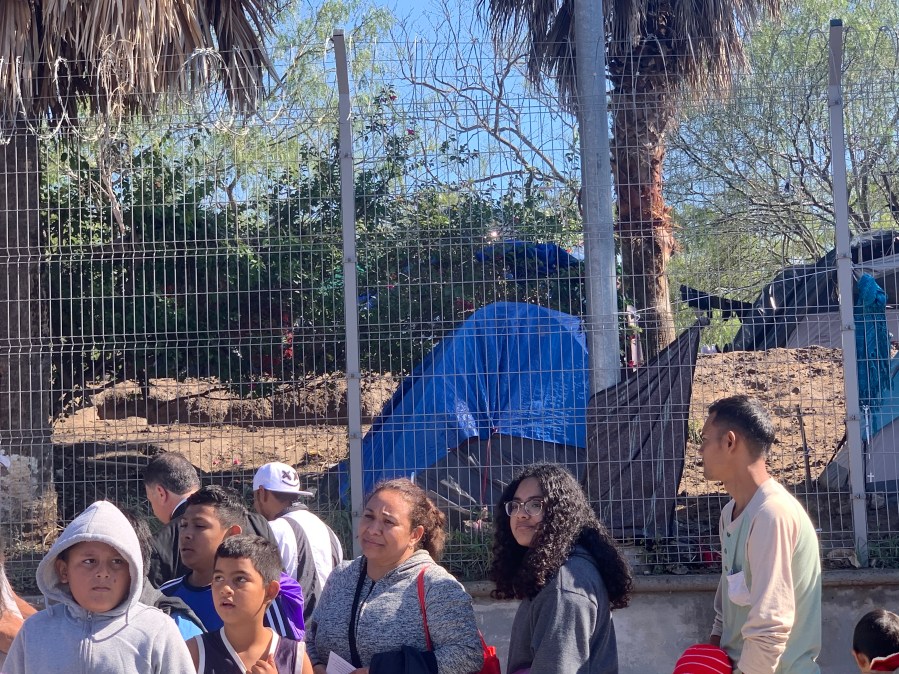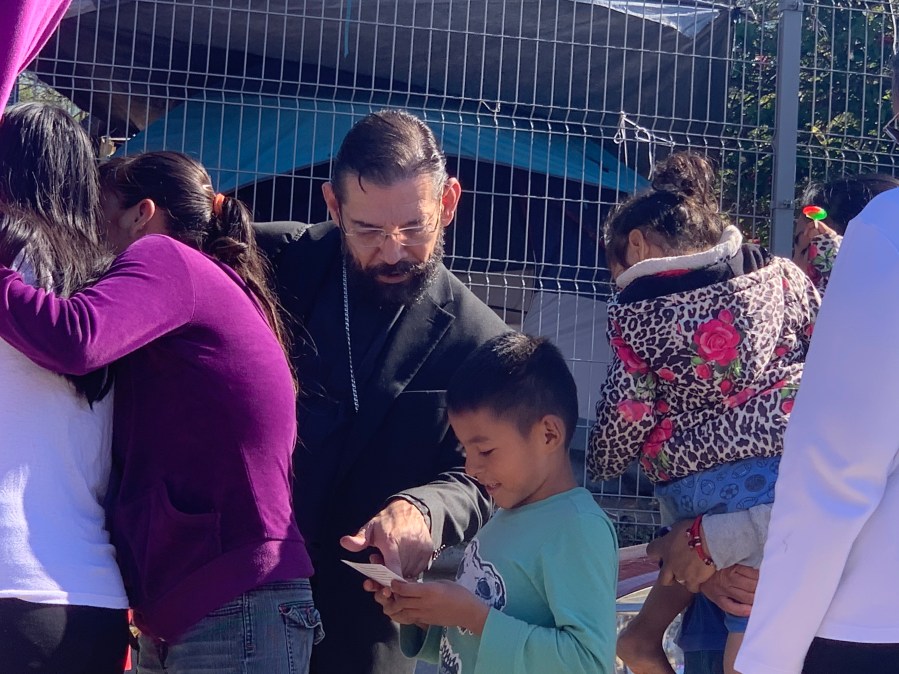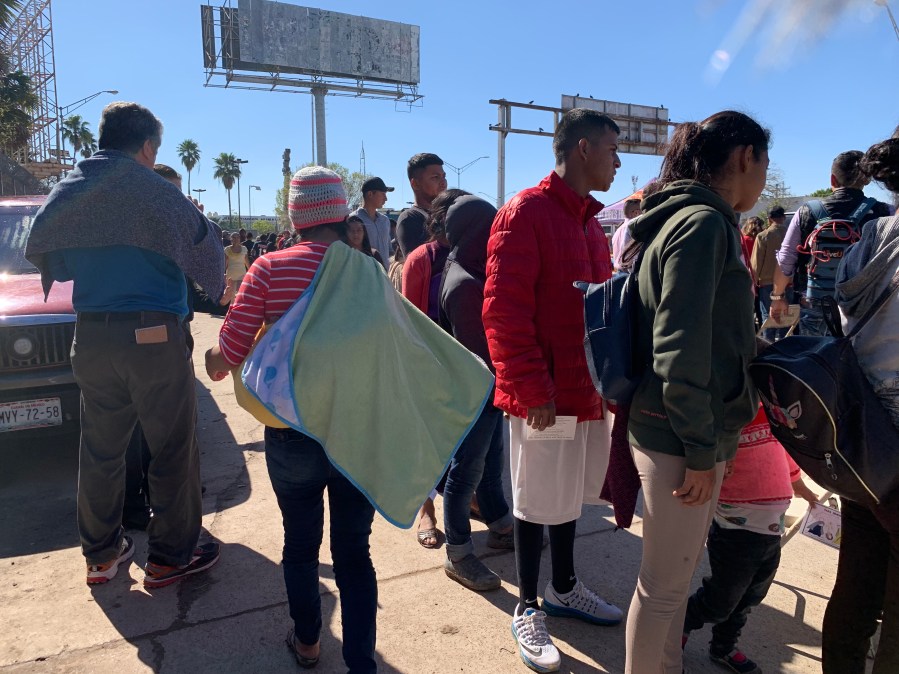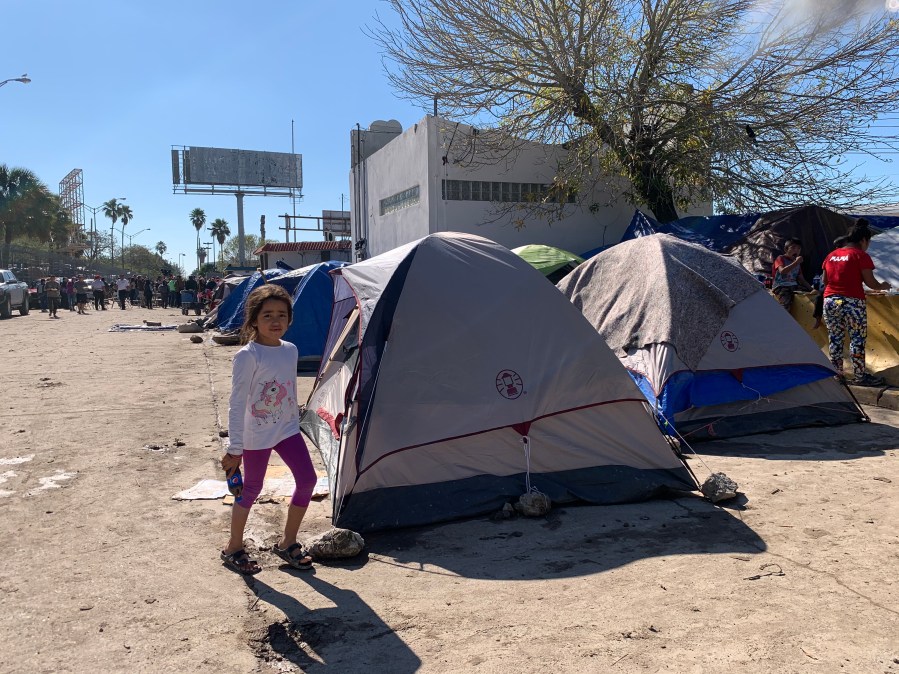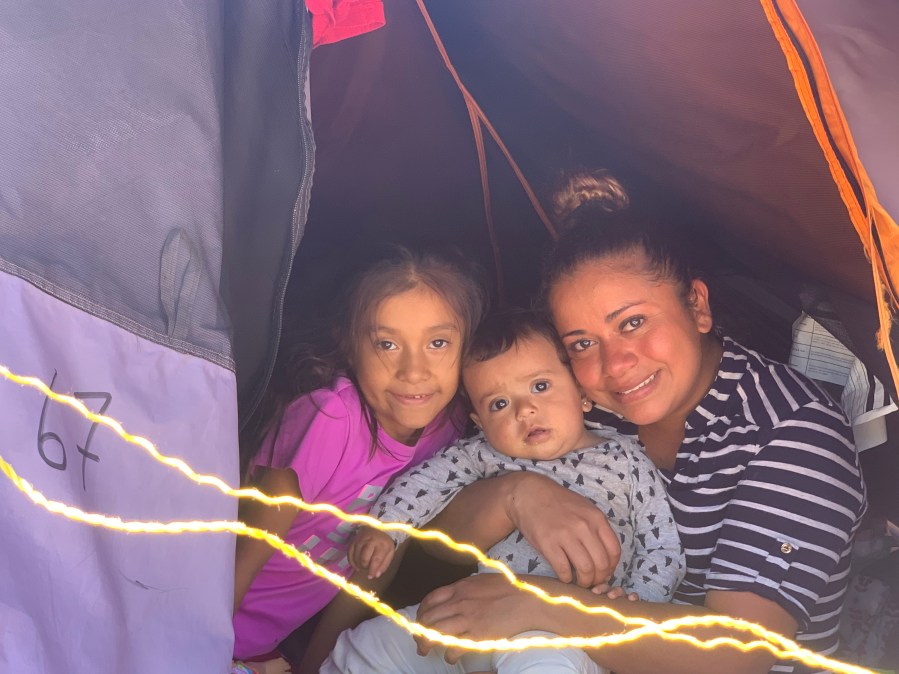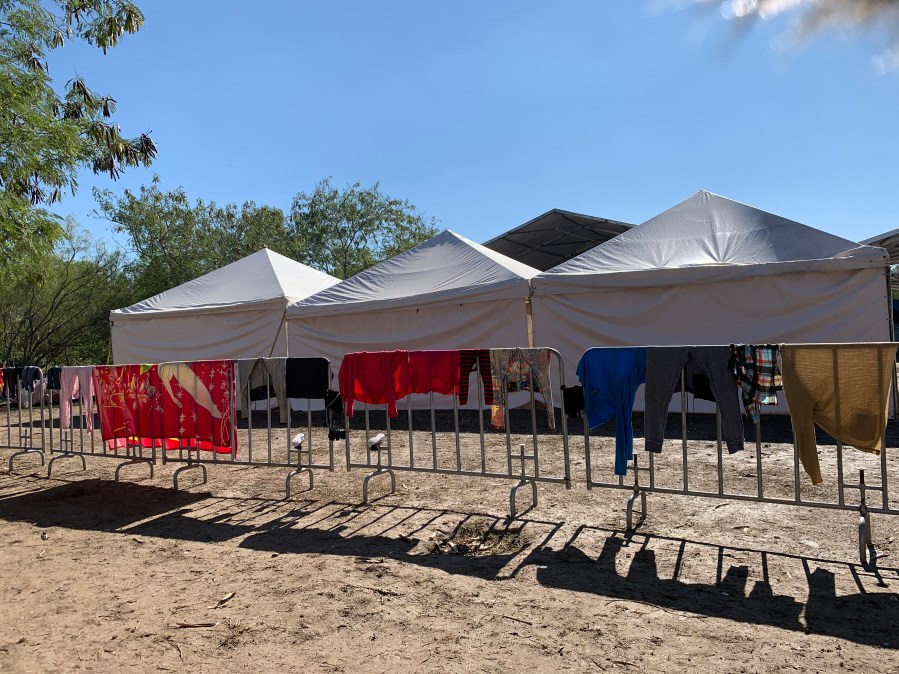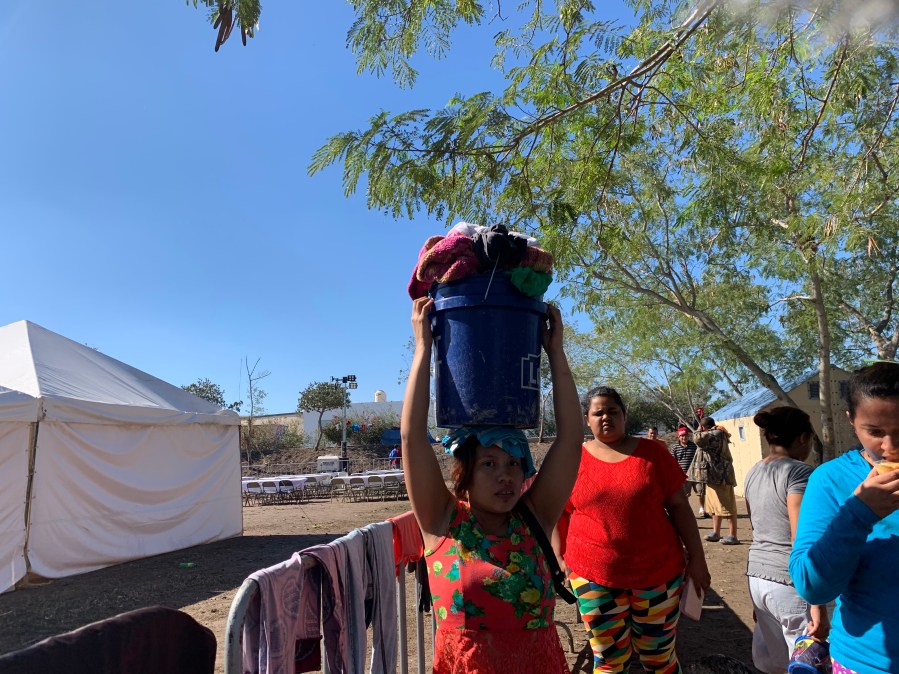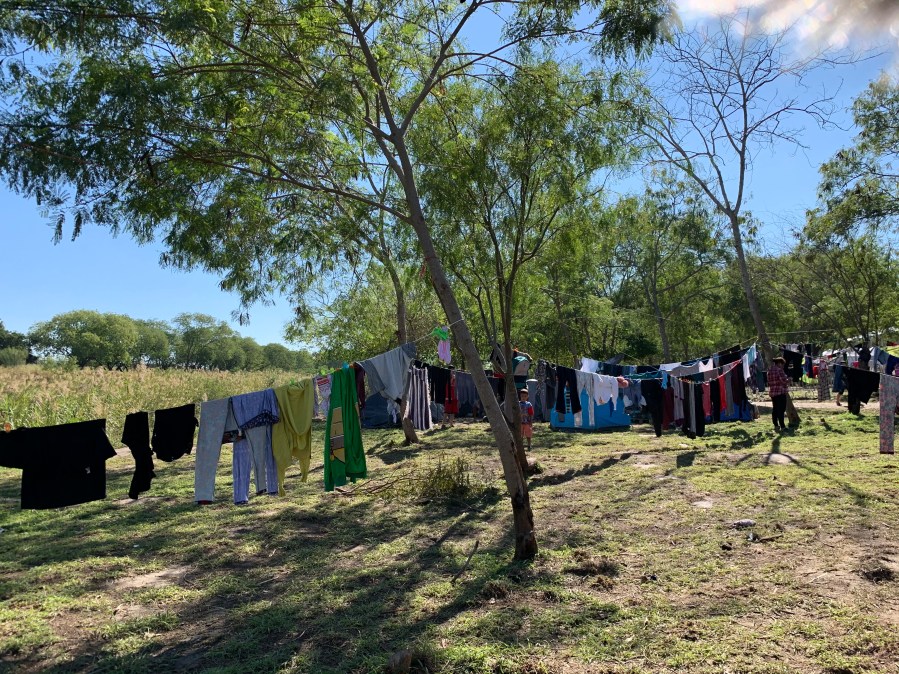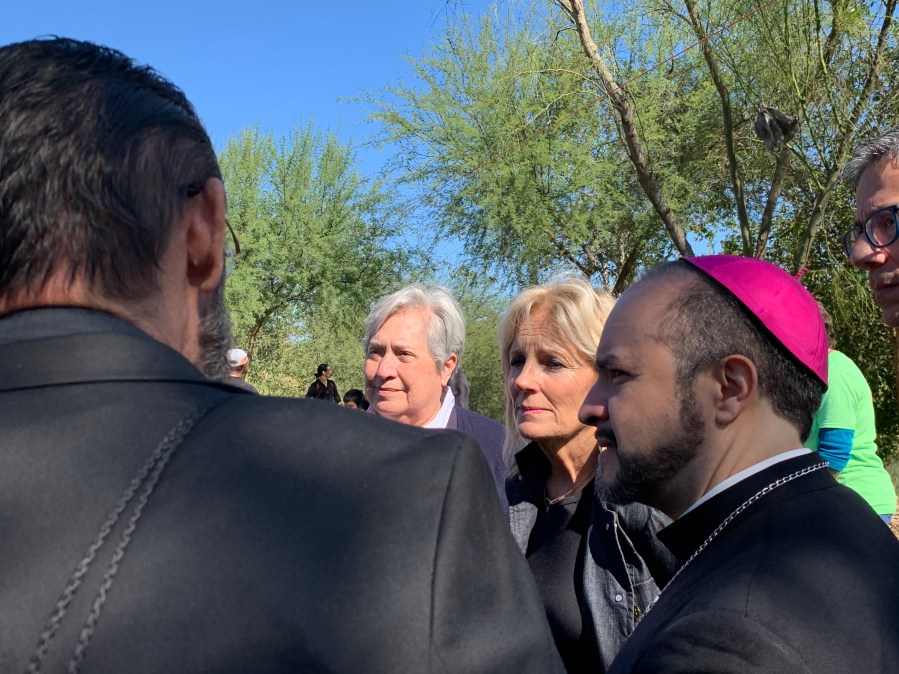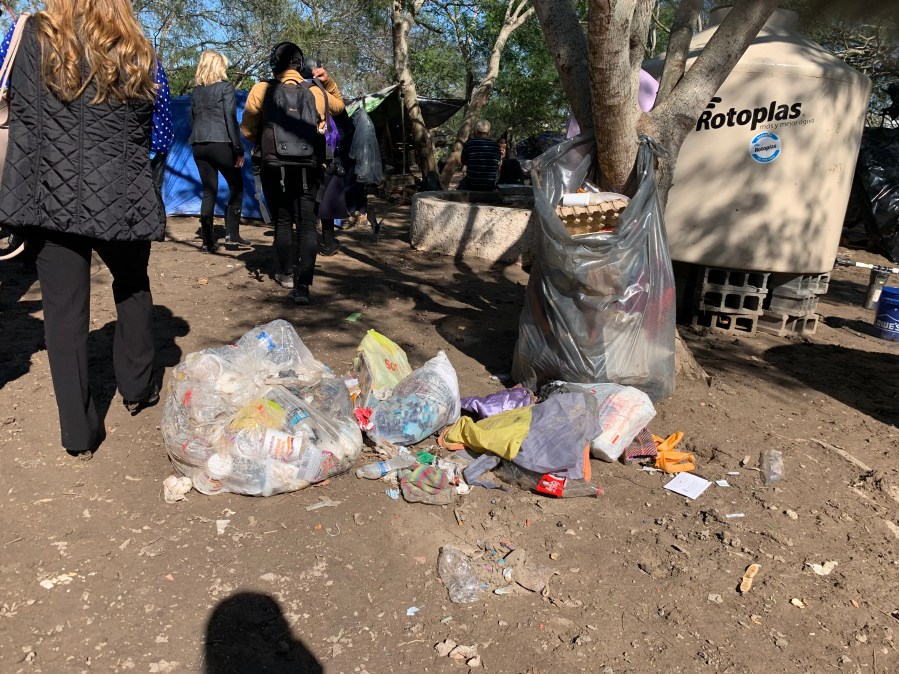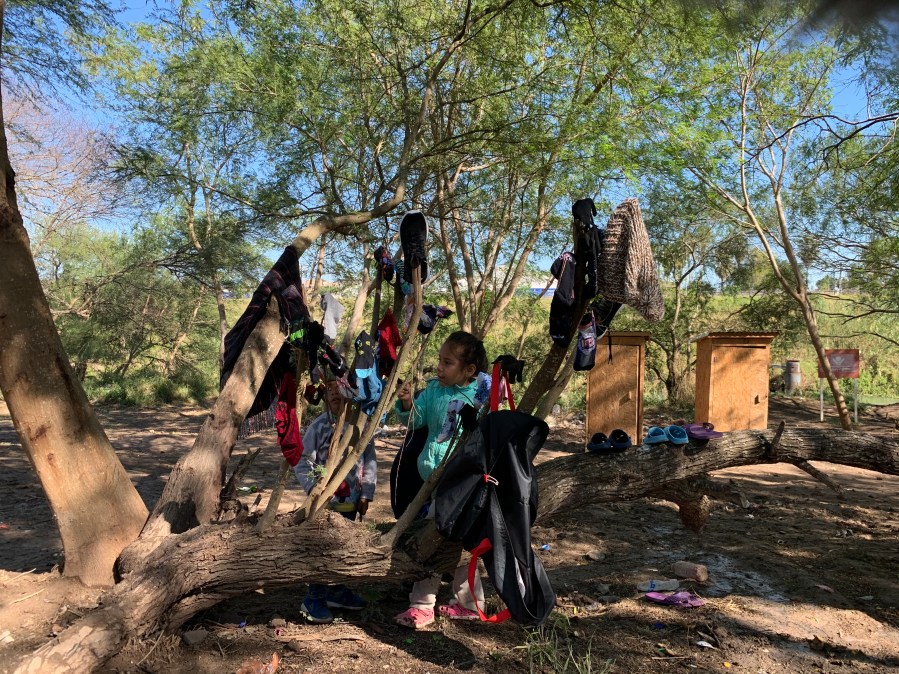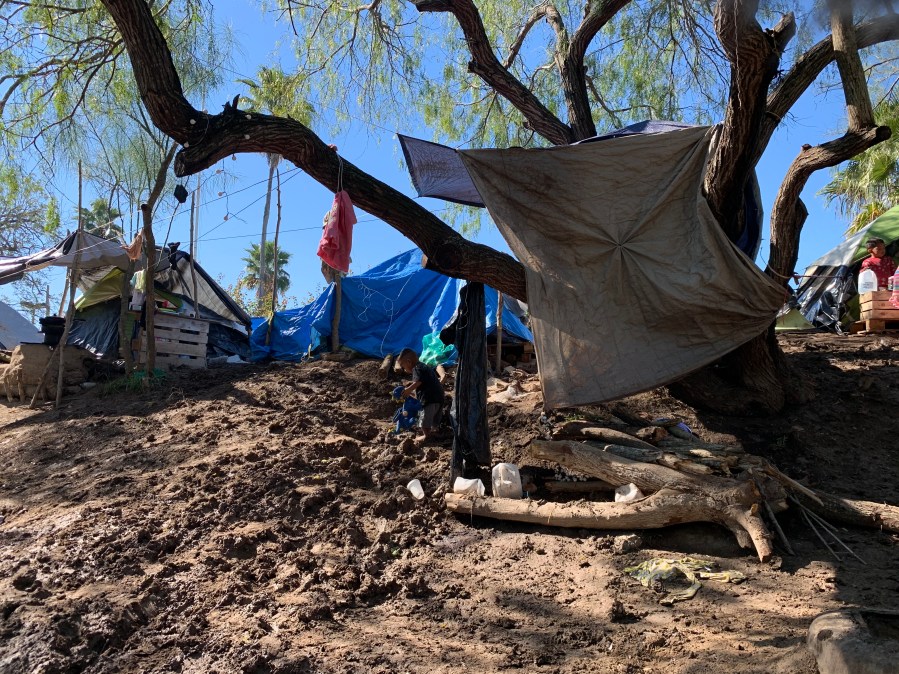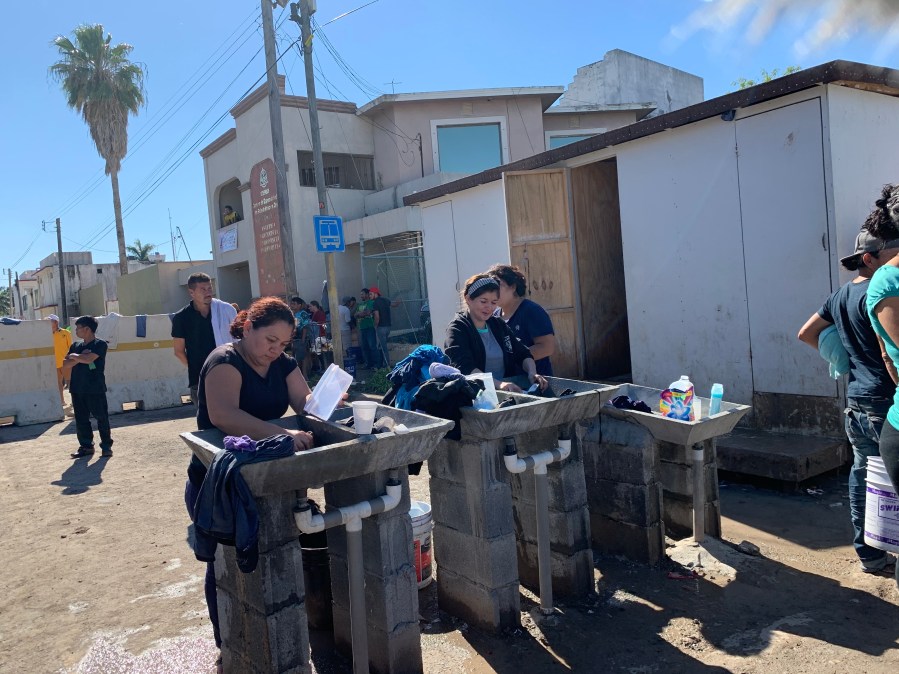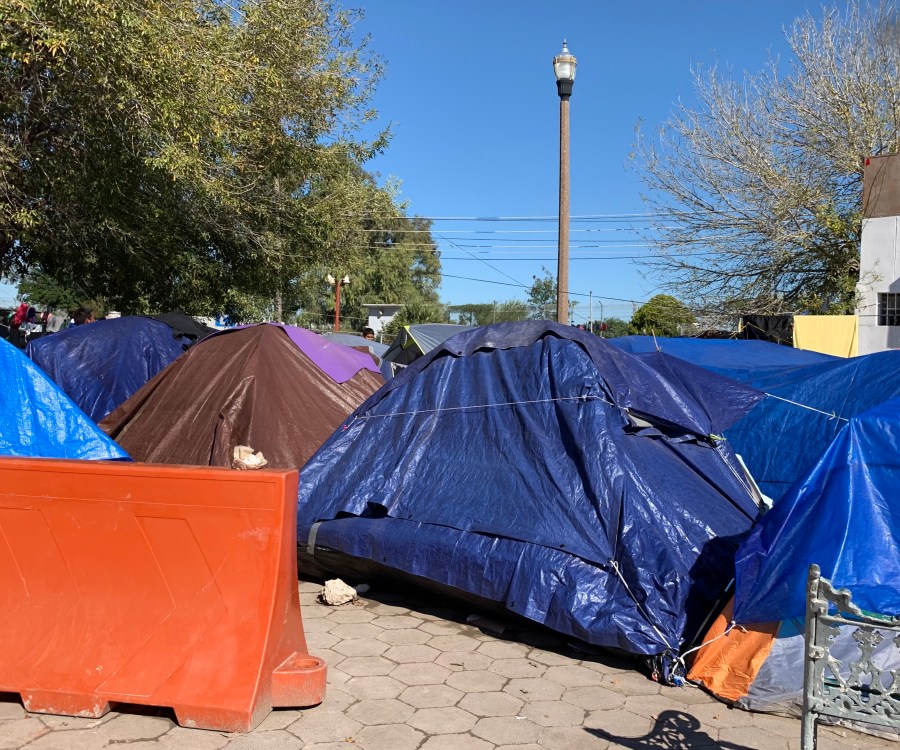[EDITOR’S NOTE: This story was updated at the request of the Trump campaign on Monday afternoon.]
MATAMOROS, Mexico (Border Report) — Trekking through thick mud and puddles left after recent rains, Jill Biden, wife of former vice president Joe Biden, joined a group of religious and local leaders on Sunday to pass out tamales and Christmas gifts to children as she toured a refugee camp across the border from Brownsville, Texas, where thousands of asylum-seekers live.
Wearing thick black boots, Biden spent almost two hours in the camp, led by Brownsville Catholic Bishop Daniel Flores, U.S. Rep. Filemon Vela, D-Texas, and well-known local Catholic nun Sister Norma Pimentel, who oversees volunteer efforts here for several nonprofit groups that help the migrants each day.

At noon the bishop led a prayer for the families who lined up for a Christmas meal plate of tamales, rice and beans. Flores asked God “to watch over these families during these difficult times.”
Over 2,000 migrants live in the camp — most of which are called MPPs, because they are forced to remain in Mexico as part of the Trump Administration’s Migrant Protection Protocols program — as they await their U.S. immigration hearings. This past year over 60,000 MPPs from California to Texas have been sent to wait in Mexico, Trump administration officials said recently.
Some of the families have been living in tents in this filthy and smelly encampment — at the base of the Gateway International Bridge — since mid-July when MPP was first implemented in South Texas.
“It’s heartbreaking. It’s really heartbreaking,” Biden said as she stood on the banks of the Rio Grande where clothes hung from trees, children played in mud pits and migrants peeked out of their tents to get a glimpse of her. “Across the river is the flag of the United States. The flag of the United States offers people hope. They’re bringing their families and their loved ones here for hope of a better future and a better life for themselves.”
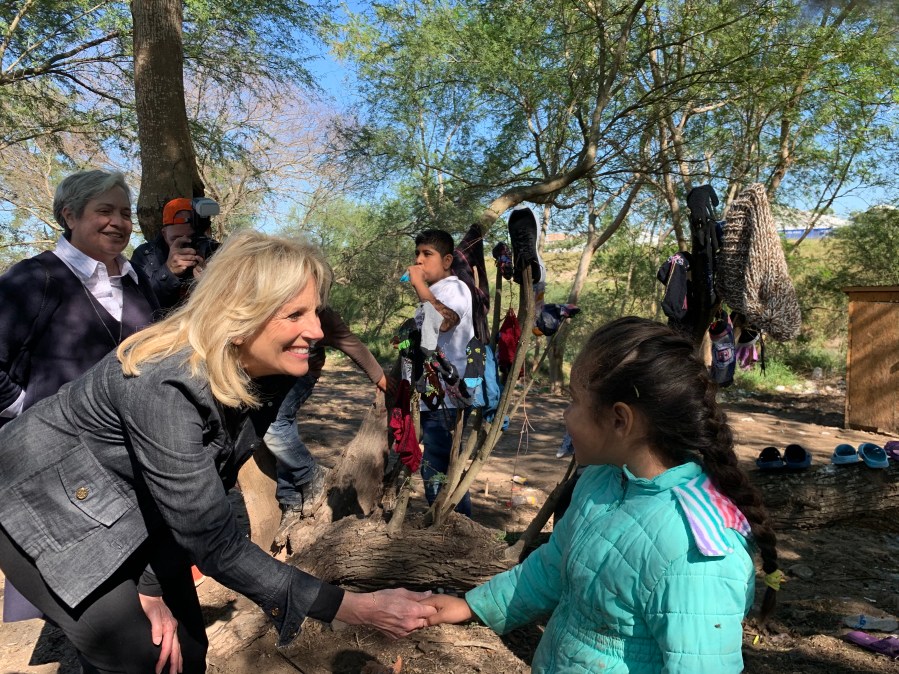
“We are all immigrants and our nation was built on immigration and immigrants and we are welcoming nation, but that’s not the message we are sending here at the border. We’re saying ‘Stop, don’t come in!’ And that’s not who we are,” said Biden, whose husband is running for the Democratic presidential nomination.
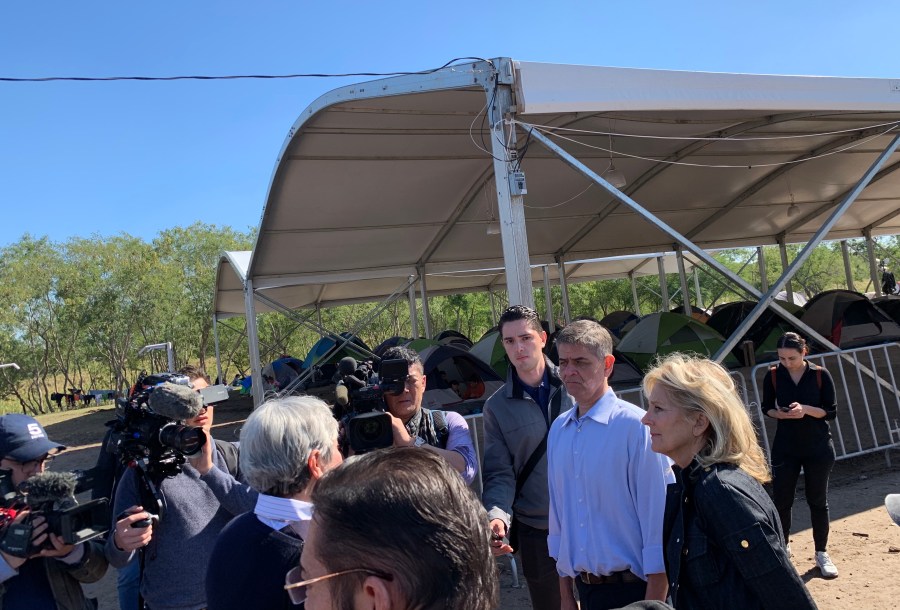
Vela told Border Report that he helped to organize Sunday’s event to hopefully bring a little Christmas cheer to the families as the holidays approach.
“Given the fact that it’s Christmas time, it was important to do something special for these people,” Vela said as he ladled plates full of three tamales for adults and two tamales for the children.
“A few months ago we had to come to the frank realization that long-term, unless something happens to MPP soon, we couldn’t expect things were going to change for them. That’s why everybody here has stepped up,” Vela told Biden as he showed her around the camp.
Several children’s shoes could be seen stuck in the thick mud, along with piles of trash and empty water bottles. Wet socks hung on trees to dry; children played with toys in the mud, and several women walked around with plastic sandwich bags on their feet to keep them dry.
“It’s been awful. The rain came so hard and fast. Everything got drenched. We all got wet,” said Vanessa Villalobos, who has been living in a tent here since early August with her husband and their 6-month-old baby.
Helen Perry, a nurse practitioner, who runs Global Response Management, a nonprofit that has set up free medical services at the camp, said she saw a few children with hypothermia earlier this week when temperatures dipped into the 30s. She said there also is lice, chickenpox and several cases of influenza in the camp.
Biden asked Perry about giving out vaccinations, but Perry said the flu vaccinations are very costly and there aren’t enough to go around.
Biden became only the second person affiliated with a Democratic presidential campaign to so far visit this refugee camp. In October, Democratic presidential candidate Julián Castro, former secretary of the U.S. Department of Housing and Urban Development, also visited this Matamoros camp.
Read a Border Report story about Castro’s visit.
On Monday afternoon, President Trump’s campaign sent an email to Border Report in reaction to Biden’s trip, and took the opportunity to call her husband’s record on immigration into question.
The “photo op with asylum seekers in Mexico highlights how far left Joe Biden has shifted away from the asylum and detention policies he touted just a few years ago,” Trump campaign deputy communications director Matt Wolking wrote.
Sunday also was Bishop Flores’ first visit to this migrant camp, he told Border Report. His offices in Brownsville are just blocks away from the Gateway International Bridge where the immigration hearings are held via court video conferencing with immigration judges who are located throughout Texas and the country.
“In some ways it’s shocking. In some ways it’s just, well, this is just the reality,” Flores said, adding he hopes Biden’s visit to the camp on Sunday will stir more awareness about their plight.
“We certainly appreciate her presence and the presence of Congressman Vela because it does help to make people aware of what’s happening on the Matamoros side of the Rio Grande Valley and draw some attention to the human aspect,” Flores said, as he shook hands with the migrants and blessed the foreheads of the children as they waited in a long line for food. “The more people know about this place, the more people have a chance to participate.”
Sunday’s event just days before Christmas Eve coincided with traditional Mexican ceremonies called Las Posadas, which signify the Biblical figures of Mary and Joseph searching for a place to stay prior to the birth of baby Jesus.
“Hopefully, especially the children will have a sense that even though they’re far away from home that God is very close to them,” Flores said as he paid $1 to walk over the bridge from Brownsville to Mexico with Pimentel on Sunday morning. “The Christmas message also is for us, in terms of our responsibility, to in some way be aware of how we can recognize the face of Christ, especially the Christ child, in persons who are struggling, persons who are far away from home, persons who really we should be in some way expressing our care of and attention to. … We can’t ignore this.”
“We can’t ignore this.”
Brownsville Bishop Daniel E. Flores on Matamoros refugee camp
“It’s about the families. It’s about being present to them, especially to them, in this time we are celebrating Christmas. It’s important we are present,” said Pimentel, executive director of Catholic Charities of the Rio Grande Valley, who spent most of the afternoon translating for Biden.
The tour included visiting a couple plastic portable units that the nonprofits have built on the muddy banks, which they hope the Mexican government will allow them to build more of to help keep out the rain and cold.
Fernando Montoya says he has lost 33 pounds since he first got to the camp in August. He has lived in a tent in the same area, at the base of the bridge, and he said he doesn’t want to move on the riverbank, where the Mexican officials are asking them to relocate.
“It’s worse up there even,” Montoya said in Spanish. “It is so muddy and when it is windy, it is dusty. And there are snakes there, the poisonous kind.” His next immigration hearing is set for March 12, 2020, he said. It will be his third hearing since he has been waiting in Mexico on this border town to claim asylum in the United States.
Visit the BorderReport.com homepage for the latest exclusive stories and breaking news about issues along the United States-Mexico border.
